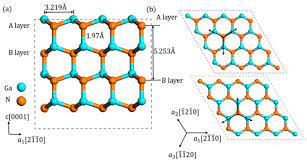ME790 - Materials modelling using atomistic first-principles calculations

Instructor
Ankit Jain
Semester
Spring ‘19-‘20
Course Difficulty
Not applicable
Time Commitment Required
Just the classes and the assignments (about 2 hours each; 1 assignment in 2 weeks, I think?), which are super easy.
Grading Policy and Statistics
-
Attendance Policy
-
Pre-requisites
Knowledge of PH107 is useful, but there are no pre-requisites as such.
Evaluation Scheme
Assignments 70%, I think and Project was for 30%.
Topics Covered in the Course
The proposed course will provide hands-on training on first-principles based state-of-the-art density functional theory (DFT) calculations. The setup of a basic planewave based-DFT calculator and the role of different simulation parameters on the obtained results would be discussed. The use of DFT calculator to calculate observable material properties such as bulk modulus, material density, speed of sound in materials, material stability, etc (without using any prior material knowledge) and their comparison with experimentally measured values (from textbook and literature) will be presented. The shortcomings of DFT calculations in predicting electronic bandgaps, handling strongly correlated solids (such as oxides) will be discussed. The course will conclude by presenting beyond-DFT machine learning based methods for accelerated material discovery. Students will work on individual projects where they will demonstrate the use of DFT calculation in their research and/or on an interesting scientific problem. Content: - Basics of programming in Python (different data types, loops, conditional execution, functions, modules, plotting), Python modules-numpy and matplotlib, introduction to atomic simulation environment (ase), ase visualization tools, introduction to unix-based HPC platform for calculations. - Introduction to crystal structures, lattice, basis, surfaces, interatomic interactions, force-fields, pair potentials, shortcomings of force-fields, introduction to DFT theory (basics only for completion). - Setting up DFT calculator via ASE-Python, choice and convergence of results with different DFT parameters, accuracy/speed trade-off, obtaining electronic energies and bandgaps. - Using DFT calculations to get Bulk modulus, material density, speed of sound, formation energies, and other observable material properties. - Under-prediction of electronic bandgaps, over/under bindings, strongly correlated solids, heavy atoms.
Teaching Style
Prof Ankit had designed the course with a learning-based approach. What I felt during the class was that their entire focus was on teaching us (and not on grading/testing us). The classroom environment was plenty informal and interactive.
I felt that their teaching style is such that you’re not really faced with an overwhelming wave of information that leaves you feeling helpless; the professor helps you break down the concepts involved, and they won’t proceed if you’re not clear on any given concept; so at the end, the ‘difficulty’ of the course should be a non-issue, because you understand the content if you speak up in class; someone has said that learning is mostly telling and teaching is mostly listening, so do speak up please : ) .
Tutorials/Assignments/Projects
Designed in a way, not to test us, but to facilitate learning.
Feedback on Exams
No exams
Motivation for taking this course
My interest in condensed matter physics.
Course Highlights
-
Course Importance
-
How strongly would I recommend this course?
Very strongly recommended just because of how the classroom environment is structured. Although, I am not sure how this would be affected in an online scenario.
When to take this course?
8th semester (Jan-April 2020, Spring ‘19-‘20). I’d say you can take it up anytime if you’ve already done PH107.
Going Forward
Would recommend trying out courses in the physics department, starting with ‘Introduction to Condensed Matter Physics’
References Used
-
Other Remarks
-
Interesting relevant links
-
Review By: Arush Gupta